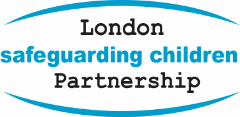The London Safeguarding Adolescents Steering Group (LSASG) was established in June 2016 to develop shared principles and enhance policy frameworks for safeguarding young people amongst London’s key strategic bodies. The group work until May 2018, supported by the contextual safeguarding team at the University of Bedfordshire, and in consultation with London’s practitioners and young people to:
- Develop a supplementary chapter on safeguarding adolescents in the London Child Protection Procedures
- Build greater consistency across their policies, strategies and work programmes concerned with safeguarding adolescents
- Enhance their understanding of the experiences and needs of adolescents through engagement in research and practice evidence
- Build greater connectivity between siloed policy areas impacting the welfare of adolescents – such as work on child sexual exploitation, children missing from home, school and care, serious youth violence, trafficking, harmful sexual behaviours and domestic abuse
- For further information about the LSASG please view our terms of reference and project plan (with hyperlinks included)
For further information on the contextual safeguarding research programme please visit here
Safeguarding Adolescents in London Survey
This report presented the findings of a survey of 120 London-based professionals from a range of agencies, on their views and experiences of safeguarding adolescents in the capital. It was undertaken as part of a programme of work for the London Safeguarding Adolescents Steering Group (LSASG) and informed the development of a new chapter on safeguarding adolescents in the London Child Protection Procedures. To learn more, and to watch a webinar of the survey findings please visit the Contextual Safeguarding website.
A pdf version of the survey is also available here
View our infographics of some of the key survey findings here
LSASG statement
Anecdotal feedback from our stakeholders and thematic findings from case reviews suggested there was insufficient advice for professionals regarding the specific safeguarding needs of adolescents. This survey captures the perspectives of a range of professionals across London. They report greater uncertainty about the adequacy of the child protection procedures for supporting professionals to engage with risk outside rather than within family settings, challenges engaging with adolescent agency, and the nature and function of partnerships that are well-placed to engage with these dynamics of adolescence. In response, the University of Bedfordshire, will draft practice guidance for inclusion in the London Child Protection Procedures. This guidance will outline the procedures professionals and volunteers should follow when responding to the risks young people face – risks which are often located outside of the home in public spaces, schools and within peer groups. The chapter will advise professionals on the options for safeguarding adolescents within existing procedures and highlight additional points of consideration when supporting adolescents. The draft chapter will be published for consultation in due course and forms one core output of our work. We recognise the need for further activities that explore: the potential to improve statutory safeguarding procedures; the feasibility of commissioning and evaluating interventions for adolescents, future training and knowledge needs within the sector; and the ways in which our organisations monitor risks faced by adolescents and measure the success of our interventions. For more information on the work of the London Safeguarding Adolescents Steering Group please contact Lucie.Shuker@beds.ac.uk
